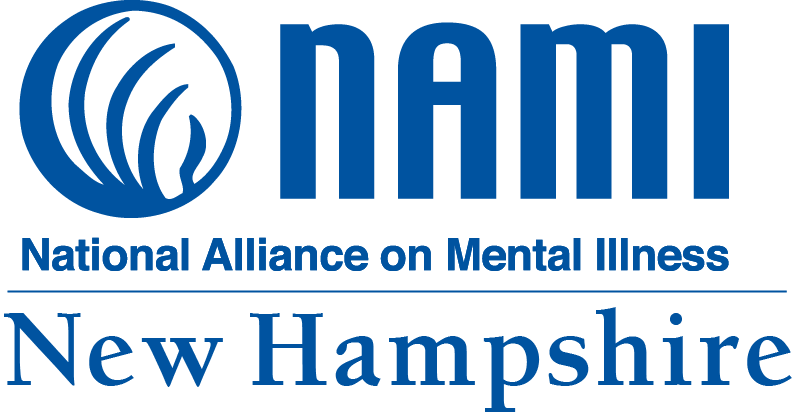| NAMI New Hampshire
|
Getting your Trinity Audio player ready...
|

Myra and Susan
Every October, at our annual NAMIWalks NH, I walk in memory of my sister Myra. When I share why I walk in her memory, I typically say that she lost her long, hard-fought battle with her mental illness in 1995. What I don’t share is that at the time of her death she had numerous medical diagnoses and several providers, yet no one ever diagnosed or treated the mental health condition that ultimately took her life – an eating disorder.
After her death, I accompanied my mother and brother to meet with Myra’s primary care provider. He was very kind, talked about how “ill” she was and how he and his practice worked to accommodate her late arrivals for appointments and the longer time that those appointments required to ensure her comfort. He verified that cardiac arrest was the cause of death for my 56-year-old sister as he recounted her medical diagnoses, none of which was an eating disorder, and not one of us in that room mentioned her emaciated physical condition and self-imposed draconian caloric restrictions. We left that appointment saddened that despite all our efforts – most especially those of my mother – we had not been able to prevent Myra’s early death.
Myra’s story is a tragic one – and I know my family is sadly one of many who have experienced such heartbreak. I wrestled with sharing Myra’s story for National Eating Disorders Awareness Week. NAMI NH is about hope – and Myra’s story does not exactly ring with hopeful messages. But then I recently had the opportunity to spend time with a group of advocates who began sharing their reasons for attending the meeting which was about women in recovery. One, a colleague of many years, after a slight hesitation, said, “I am in recovery from an eating disorder.” I was at first surprised, but then I thought, “why on earth are you surprised?”
For too long, we mental health advocates have not done enough to raise awareness around eating disorders. In part, that’s because of how our society glorifies weight loss and being thin. Only a week ago I found myself telling a co-worker they “looked great” and realized immediately after the words came out of my mouth that what I really meant was they looked thinner – and my instinctive response was that it is good to be thin, because I, like Myra, am a product of our society where we have been taught that you can never be “too thin.”
Yes, we have more work to do. First and foremost, we need to follow the lead of our young people. Two years ago, the NH Legislature enacted a law to include what was then the National Suicide Prevention Lifeline (now the 988 Suicide and Crisis Lifeline) on the back of all school identification cards. Then last year, a NH student, Matthew Brown, asked a representative to sponsor a bill to add a national eating disorders hotline to the student ID cards. Matthew has been courageous in sharing his story and advocating for the addition of the eating disorders hotline. That bill hit a snag due to workforce issues at the hotline, but it is back this year and on its way to the House floor having been voted “ought to pass” in Committee by a vote of 19-1.
Some might ask why would we need to add an eating disorders hotline since the Lifeline number was on the ID cards? The answer – we need to listen to our young folks and advocates like Matthew. We hear from young advocates how they or their friends struggling with disordered eating would not necessarily see themselves as being “in crisis” or requiring a suicide lifeline. But they know they need support. We know all too well that keeping mental health disorders in the shadows increases discrimination and, too often, can lead to tragic outcomes. Indeed, the National Institutes of Health report that people with eating disorders are at higher risk of suicide and that providing resources to help them address their disorder can reduce suicidal ideation and prevent future mental health problems.
We also know that sharing our stories helps dispel the shame and stigma that perpetuate discrimination and prevent folks from seeking treatment. During National Eating Disorders Awareness Week, we must commit ourselves to not just talking about eating disorders this week, but all year round. We must take this moment of heightened awareness and turn it into compassionate action. Together, let’s follow the leadership of our young people and advocate for more prevention efforts and more treatment that is evidence-based, trauma-informed, and accessible. Folks like Matthew and my colleague are bravely sharing their stories. Let’s honor that bravery by joining them and helping to ensure that folks living with eating disorders can, indeed, find help and hope.
Yes, come October I will once again walk in Myra’s memory. But I also commit to advocating every day for folks impacted by eating disorders to have the care and support they need to live full, long lives in their communities. I can think of no better way to honor my kind, loving, and much-loved sister.
There is help – and there is hope for those impacted by eating disorders. Click here for resources and educational materials.
Susan Stearns, Executive Director
NAMI New Hampshire

